 ANNOUNCEMENTS
ANNOUNCEMENTS
 ANNOUNCEMENTS
ANNOUNCEMENTS
On November 24, 2023, the Research Cell of Loreto College, Kolkata
organized a Faculty Paper Presentation. Dr. Rupa Ghosh, Assistant
Professor, Department of Economics presented a paper entitled “Parental
Academic Involvement and Educational Aspiration: An Investigation into the
Lives of the Domestic Workers of Kolkata.”
Dr. Ghosh's paper highlighted that education is the best gift that parents can give their wards as it not only equips a child with cognitive and non-cognitive skills but also helps them to become economically productive and financially independent. The issue draws special attention when the parents belong to the underprivileged and poverty-stricken sections of society, due to which they lack the resources to be academically involved in their wards’ education. Dr. Ghosh’s study focused on the domestic-worker parents who, while struggling with acute poverty, deprivation, and illiteracy, sacrifice their own family and child-care needs.
Using self-made scales and a descriptive survey research design, the study utilized random sampling of 600 domestic-worker parents to investigate the interrelationships and various factors that affect the academic involvement and educational aspirations of the domestic workers of Kolkata. The results reflected that time, money, and education are the most important factors determining the academic involvement of the parents. Money income and education also showed a positive influence on educational aspiration. The findings of the study could help educationists and policy makers to develop models and policies to sustain the interest of these workers in education and encourage greater academic involvement.
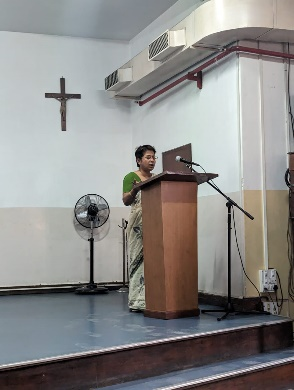
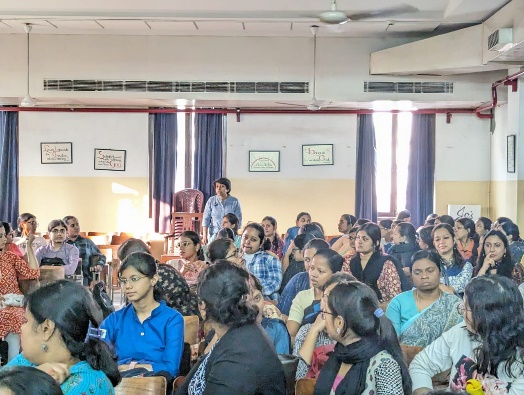
A Research Cell Programme was held on March 22, 2024 from 2:45 – 3:45 pm in the college Auditorium. Dr. Kaustuva Banerjee presented a paper entitled ‘School Health Status in West Bengal’. She began her deliberation by highlighting that the 2020 Progress report is the first report of Global Action Plan for Healthy Lives and Well-being for ‘All’ titled as Stronger Collaboration, Better Health. It is based on a simple premise that – stronger collaboration contributes to better health. Health and Education are important attributes of demography which also affects each other. She moved on to explain that according to UNESCO there are around 1.2 billion adolescents aged between 10-19 years that is approximately 16% of the world’s population. More than half of all adolescents live in Asia. UNICEF states that India has the largest adolescent population in the world and every fifth person is between 10-19 years. Her study highlighted the existing physical, mental and social health condition of school adolescents and physical and psycho-social environment of the school surveyed from four districts of West Bengal namely North 24 Parganas, South 24 Parganas, Haora and Hugli. The objectives of her study were to analyze the nature of the health risks adolescent school students are facing, to find out the physical and psychosocial environment of the schools, to find out the differences in health status existing between the Government, Government sponsored and Private schools and in urban and rural locations and to recognize the barriers in implementing School Health Programmes. Both quantitative and qualitative analysis had been conducted. The results showed that adolescent students’ health issues are not same universally for boys and girls and in the rural and urban areas. It varies between the Government, Government Sponsored and Private schools. From the study it can be recommended that the barriers identified to access the health services needs to be brought under consideration and required steps needed to be taken to remove the barriers and make adolescent health services more accessible irrespective of districts, school types, gender and location.
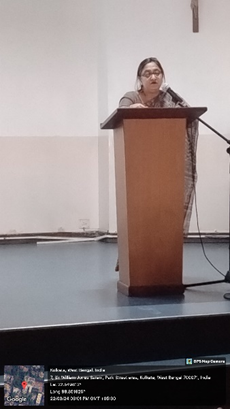
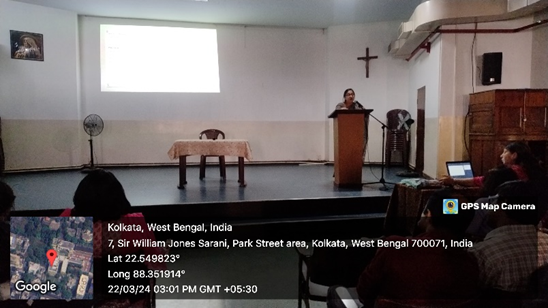
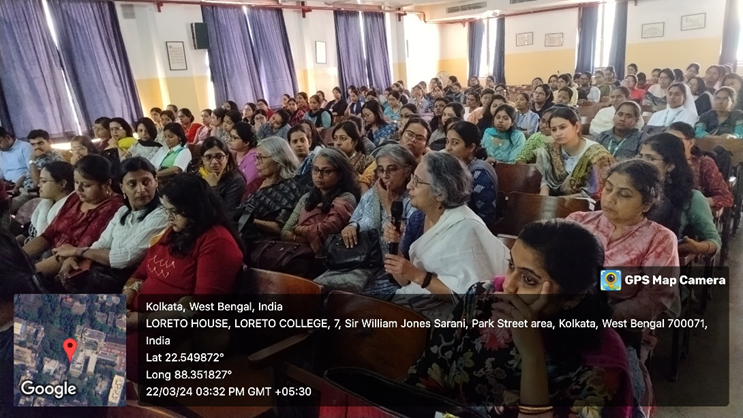
On April 12, 2024, the Research Cell of Loreto College, Kolkata organised
two parallel sessions for the presentation of papers by students from the
Departments of History and Economics. Ayona De Dhara and Debjani Biswas
(Semester VI, Department of History) presented a paper entitled “History,
Fiction and Imagination: Investigating the Historical Novels of Saradindu
Bandyopadhyay.” The research was conducted under the supervision of Dr.
Krishnokoli Hazra, Department of History and Dr. Amrita Dasgupta, Department
of Bengali. Saradindu Bandyopadhyay, a stalwart of Bengali literature, had
used the canvas of history and the tools of literature to create
unforgettable historical novels. Using these texts as case studies, the
research explored the challenging but fascinating frontier between history
and literature. The young researchers effectively examined the
intersectionality of the colonial political context, nationalist responses,
popular history, and the power of literature to bring the past to life.
The other paper, titled “E-commerce, a Game Changer in the Daily Life of
People in Post-Pandemic Times: A Household Level Study Based in Some Parts
of Kolkata and South 24 Parganas,” was presented by Annesha Majumder,
Dipanwita Chatterjee, Khadeeja Jamil, Navyaa Agarwal, Rishika Gupta, and
Tirthaa Mayra (Semester VI, Department of Economics), who had conducted
their research under the supervision of Mr. Mainak Bhattacharjee. The
students had conducted a household-level survey using a mail-questionnaire
method and had received approximately 110 responses. Having developed a
satisfaction index based on qualitative responses, their research probed
the preference for e-commerce among end-use consumers in post-pandemic
times. The study attributed this phenomenon to subjective factors relative
to socio-economic-demographic factors. Both the presentations were received
well by their respective audiences, who asked numerous questions that were
ably addressed by the students.
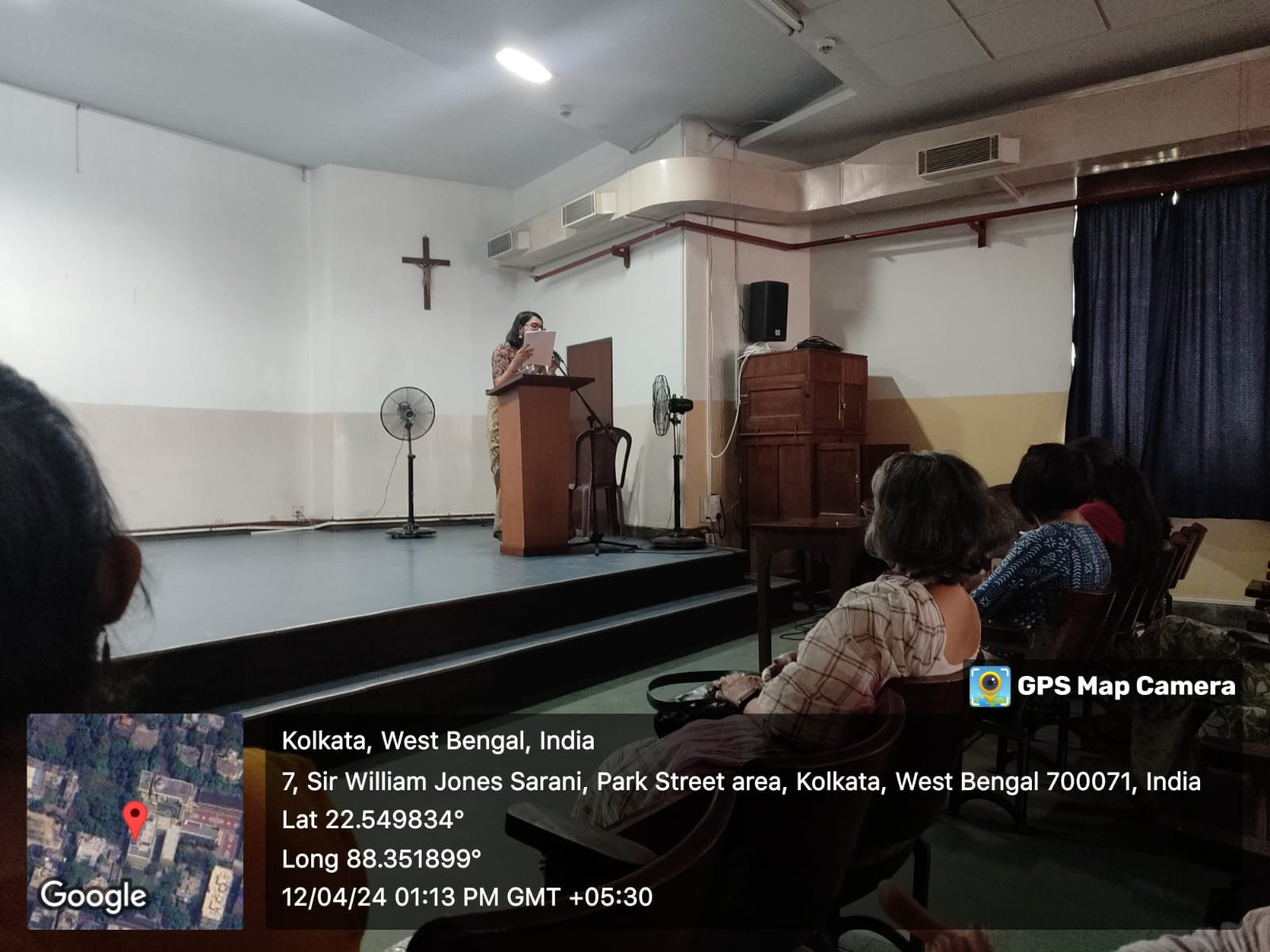
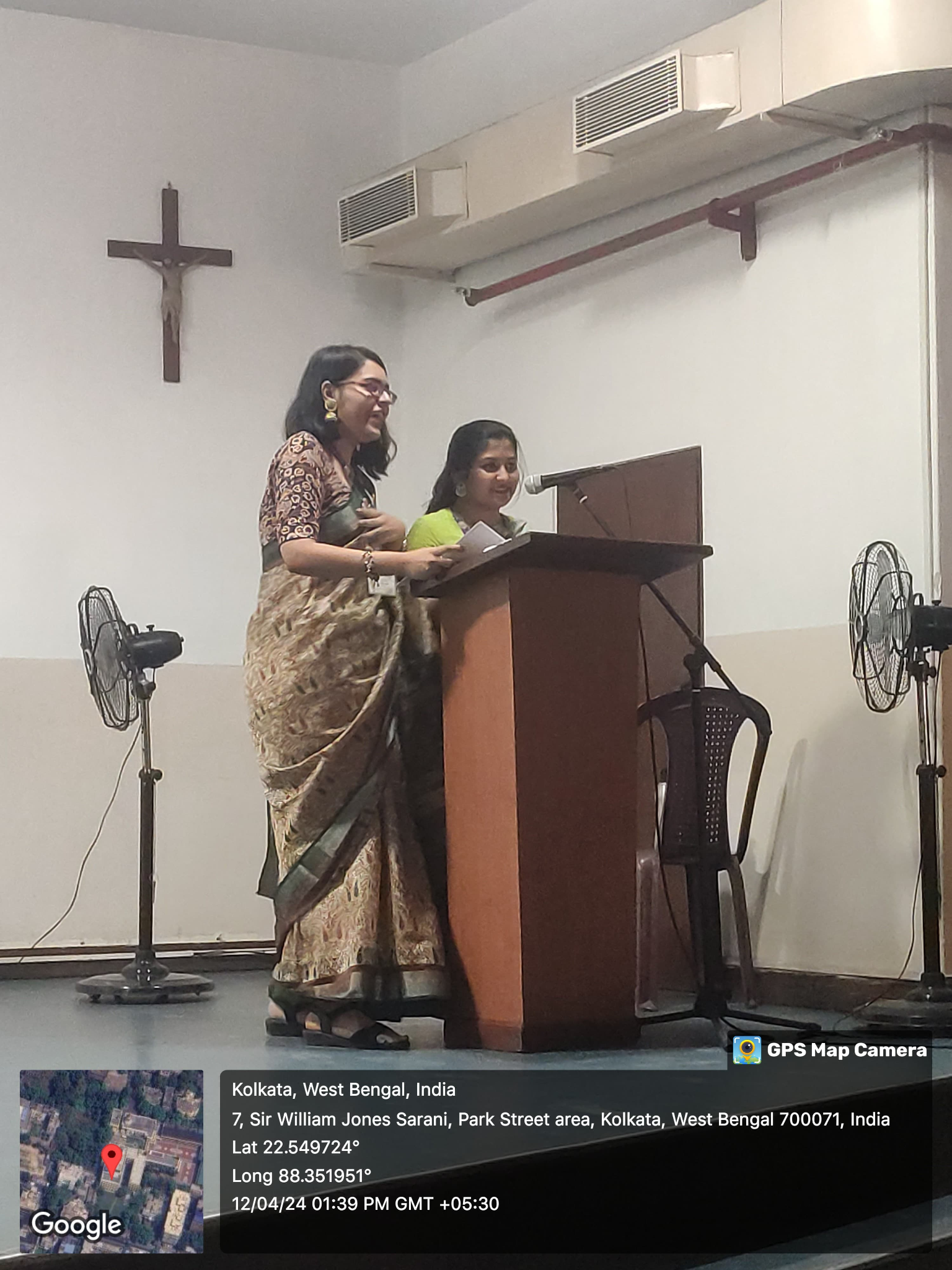
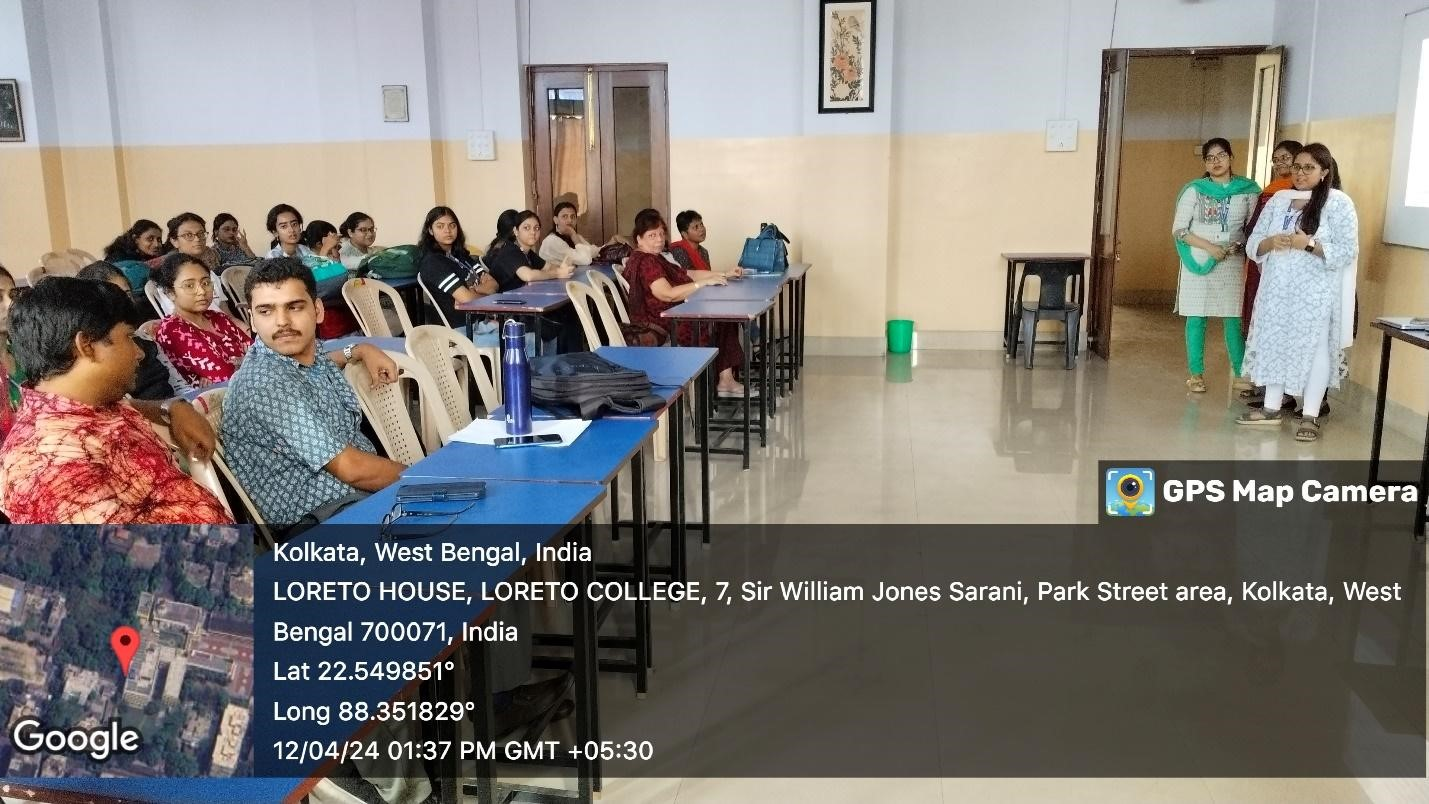
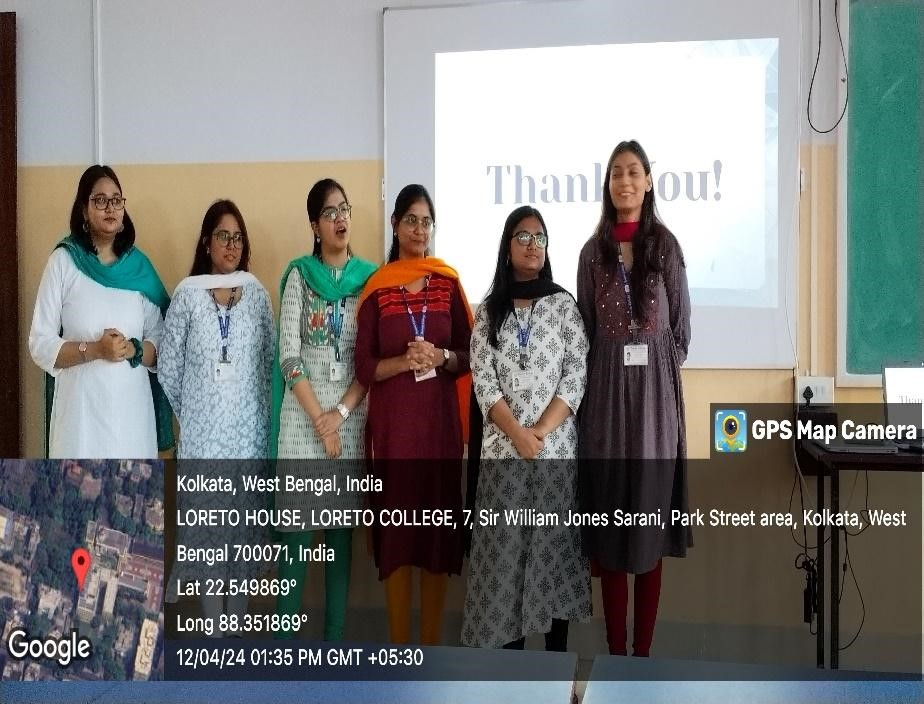
On June 18, 2024, the Research Cell of Loreto College, Kolkata organised
two research paper presentations by students of the Department of
Psychology. Anubha Roy and Harshita Sharma (Semester VI) presented their
study titled “A Study on Help-Seeking Behaviour in Adults in Kolkata,
India,” which was conducted under the expert supervision of Dr. Dinaz R.
Jeejeebhoy. Their study sought to uncover the nuances in attitudes towards
seeking medical versus psychological assistance within Kolkata’s urban
population. Their findings were not only insightful but also hinted at a
brighter future for explorations in this domain. Particularly noteworthy
was their discovery of a negligible disparity in attitudes towards seeking
medical and mental health support, suggesting promising prospects for
advancing mental health initiatives across urban India.
The second presentation was delivered by Dipannita Dey, Shinjini Dey, and
Shinjini Sarkar (Semester VI). The research study, which was conducted under
the supervision of Ms. Shankhabela Mukherjee, was titled “Emerging Practices
in Online Therapy: Perspectives of Online Therapy.” It focused on the
experience of online therapists in conducting online therapy, its positives
and negatives, and its future and sustainability. The study also touched on
issues such as the differences in online and offline therapy, ethical
concerns, and the role of artificial intelligence in online therapy.
Arguments to support online therapy were identified while changes to
improve the method were also highlighted.
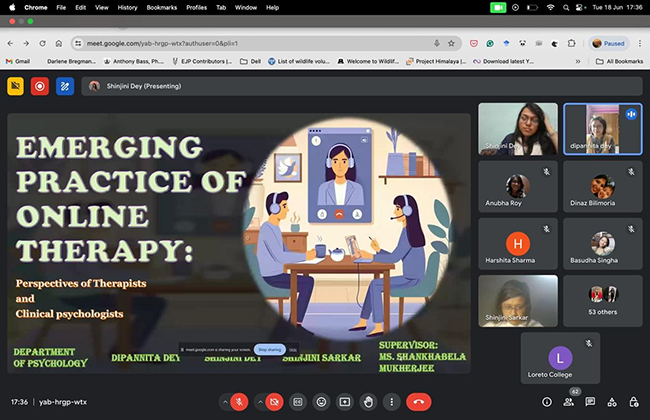

On June 18, 2024, the Research Cell of Loreto College, Kolkata organised a set of student paper presentations, featuring three research papers from the Department of History. The studies were conducted under the guidance of Dr. Suparna Bhattacharya, Associate Professor, Department of History.
The first research group, comprising Ahana Sen and Sudeshna Sarkar (Semester VI), delivered a paper titled “In the Vanguard of Freedom: Unveiling the Women Revolutionaries in Bengal (1905–1947).” Their research was centred on the challenges faced by women in advocating for their political rights, and they analysed how the subjugation of women catalysed the emergence of feminist movements and ultimately paved the way for contemporary feminism in India. They also spoke about the role of female prostitutes, especially those operating in the Lal Bazar area of Calcutta (now Kolkata), and their financial support to the freedom struggle. Accounts of Bina Das, Savitri Devi, and “prison narratives” were highlighted during the presentation.
The second presentation was delivered by Soumili Das (Semester VI). Her paper titled “The Institution of Caste: Its Evolution, Social Context, Reforms and Political Significance” contended that caste, its complexities, and its evolution from the Vedic to the Late Vedic periods, elucidate how the institution transformed from being loosely defined in the former to becoming more clearly delineated in the latter. Furthermore, she discussed how the Brahmanical Hindu Tradition, Buddhism, and Islam played critical roles in shaping the concept of caste during the late ancient and medieval periods. Notably, the formal registration of caste in contemporary times through mechanisms such as the Census further solidified and reinforced the rigid structure of the Indian caste system.
The third presentation was delivered by Debika Bhakat (Semester VI). The title of her paper was “An Analysis of Hindu Bengali Marriages: A Historical Case Study.” Her paper explored the definition of marriage and delved into its earliest mention in the Rig Veda. It examined the rituals, material aspects, and religious significance associated with Bengali marriage ceremonies, emphasising intricate details such as the symbolic importance of Shakha Pola in signifying married status for women. Furthermore, the paper discussed two case studies involving individuals in distinct marital situations: a single, separated woman in her forties and a married man in his mid-thirties.
The papers were followed by an interactive session during which the presenters convincingly addressed a number of audience queries. Overall, the three research studies proved to be original and noteworthy contributions to the discipline of History.
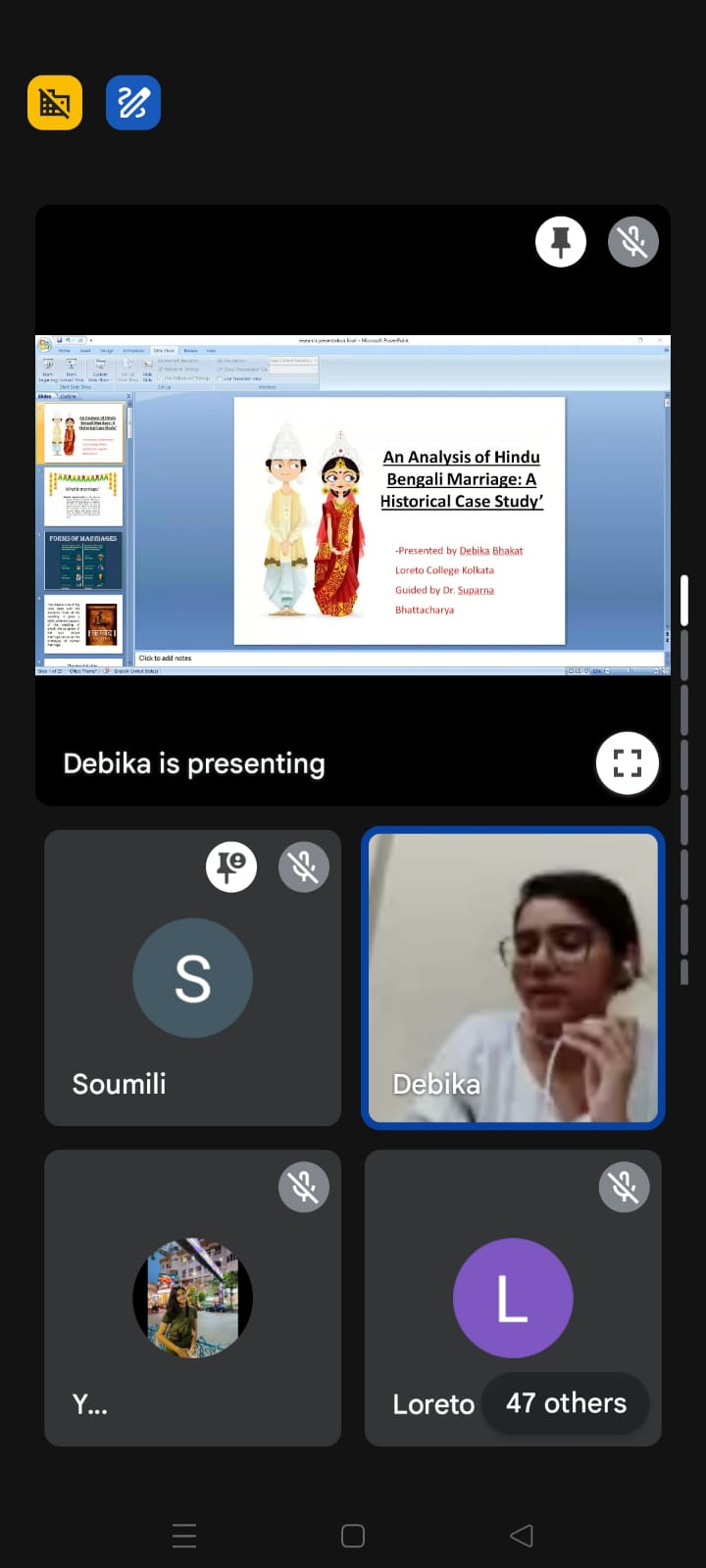
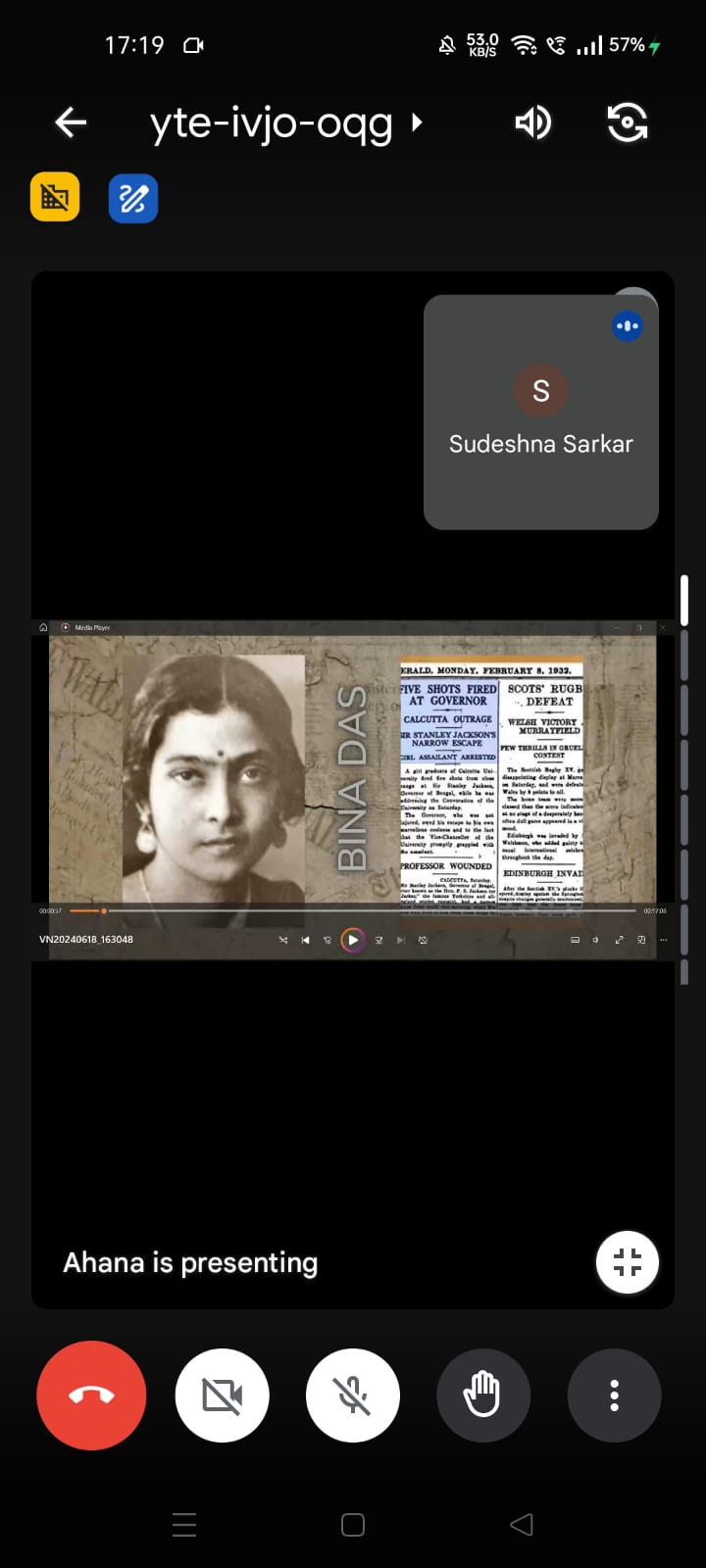
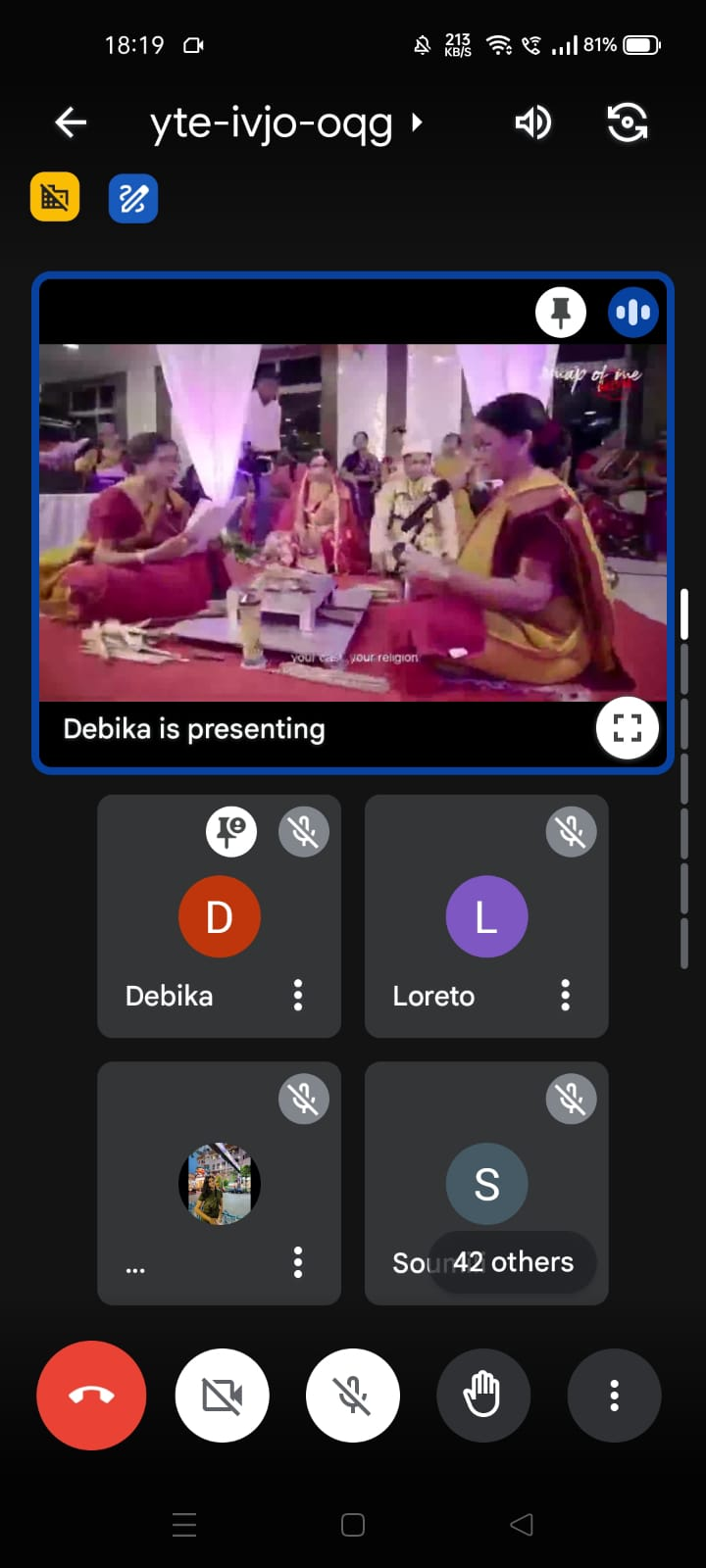
The Research Cell of Loreto College, Kolkata organised a student paper presentation on June 18, 2024. Natasha Bhimsaria, a Semester VI student of the Department of Education, presented her research project titled “Self-Esteem and Social Identity: A Gendered Perspective.” The research was conducted under the guidance of her supervisor Dr. Ranjita Dawn and co-supervisor Mr. Mainak Bhattacharjee. Her study and presentation traced the interrelationships among self-esteem, social identity, and gender. The findings of the study also revealed that age had a significant impact on one’s self worth and identity. The presentation focused both on quantitative and qualitative analysis of findings. It was attended by the Semester II, IV, and VI students and faculty members of the Department of Education.
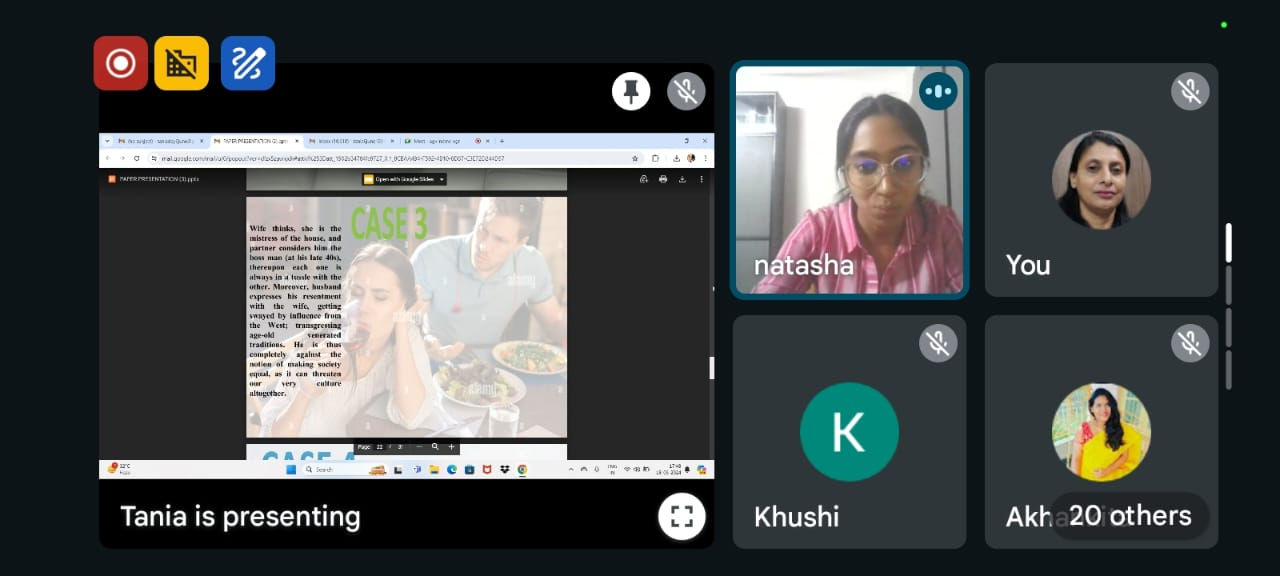
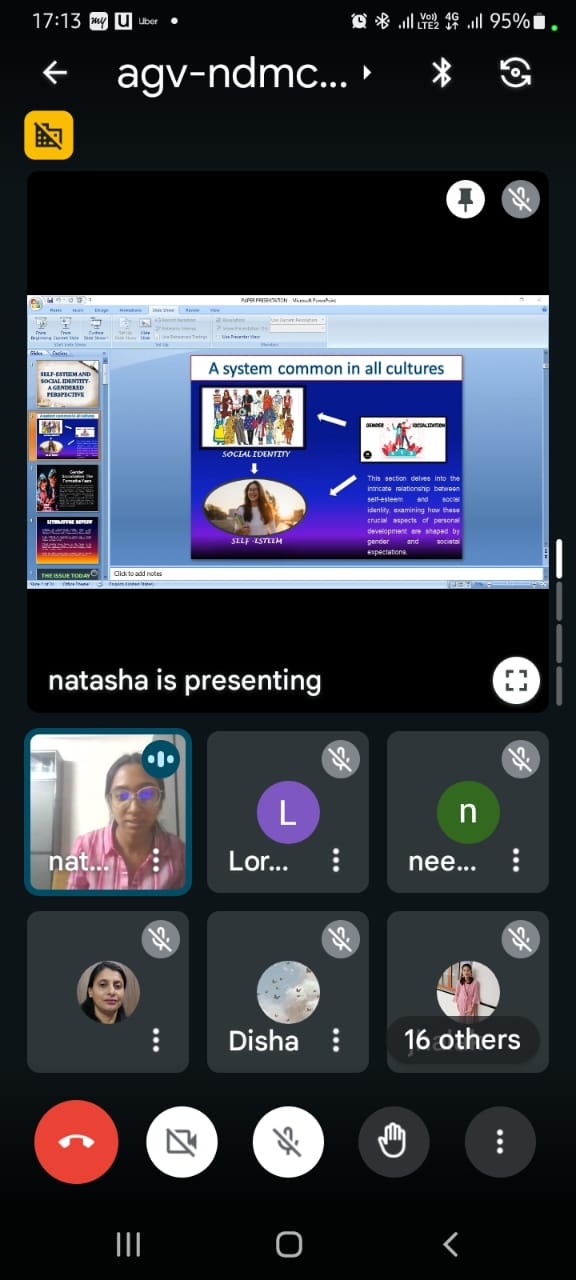
This report highlights the events conducted by the Research Cell in the year. We look forward to new opportunities and continued growth in the coming year. We thank all presenters for their support and engagement with our research endeavors.
On behalf of the Research Cell of Loreto College, a Teacher Paper
Presentation was conducted on December 20th, 2022 at the college
auditorium, at 3pm. The speaker of this event was Dr. Jhelum Podder,
faculty member of the Department of Psychology, and the topic of her
presentation was “Oedipal Underpinning of the Doubtful Mind”.
The program commenced with a note of introduction by Dr Dinaz Jeejeebhoy, following which, the speaker was called upon to deliver her presentation. Her research looked into the oedipal origins of paranoid pathology and compared it with the oedipal roots of non-clinical individuals. Variables like defence mechanisms, narcissism and guilt were also studied in this research. Both quantitative and qualitative methodologies were utilized for the study. Through the study it was evident that parental influence, especially that of the mother, has a significant role in the development of paranoid pathology.
Following the presentation, a brief question and answer session was opened for the audience. We hope that this event provided an invaluable opportunity for our students, faculty and guests to broaden their knowledge and understanding of this topic.
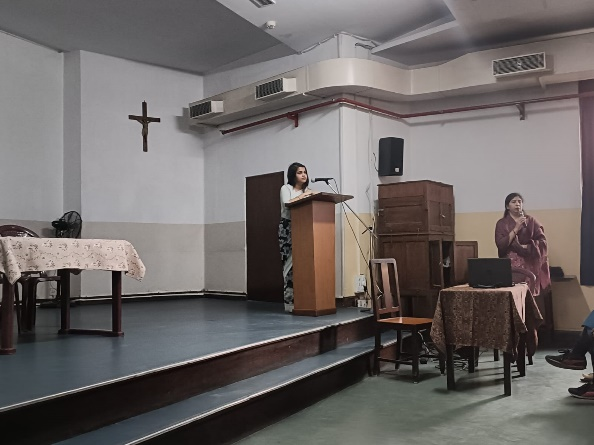
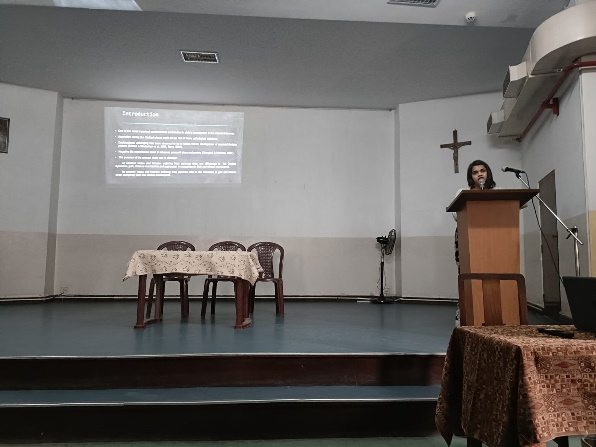
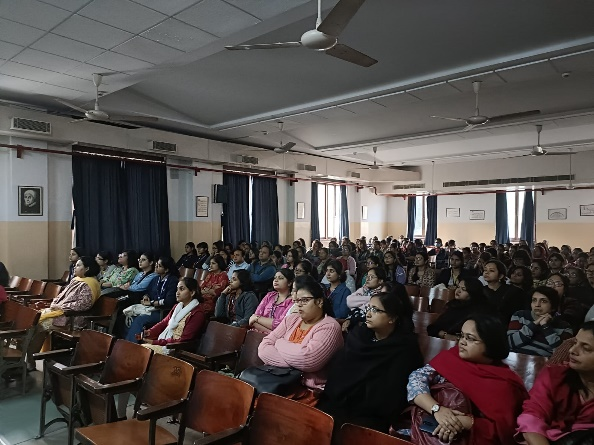
A presentation on “Perception of Mother, Nation, Goddess in a few songs of Rabindranath Tagore” was organised by the Research Cell of Loreto College on May 2, 2023. The speaker for the event was Dr. Sanghita Sanyal, Assistant Professor, Department of English, Loreto College. Dr. Sanyal began her presentation with a performance of a song by Rabindranath Tagore, after which she provided an overview of Tagore’s songs from the “Swadesh Parjay.” She argued that these songs may be called songs of solidarity, and that they create a somewhat nebulous perception of Tagore’s ideals of Mother, Nation, and Goddess. Through these songs, Tagore was incorporating himself into the contemporary milieu of pacifist and militant nationalisms, and his perceptions played a role in reshaping the collective national conscience. Dr. Sanyal also discussed how the songs are open to a newer reading of the gender question. Touching upon Tagore’s idea of nationalism in relation to the rest of the country, the presentation analysed Tagore’s viewpoints on the problematic space that women occupied in and around the indoctrinated notions of nation and home.
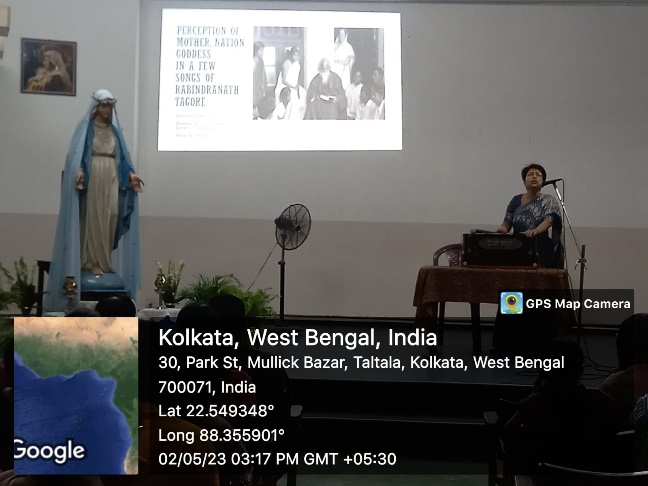
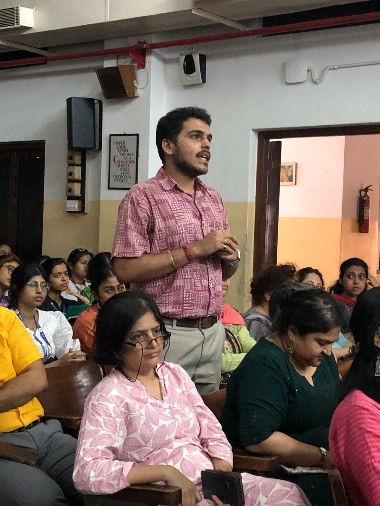
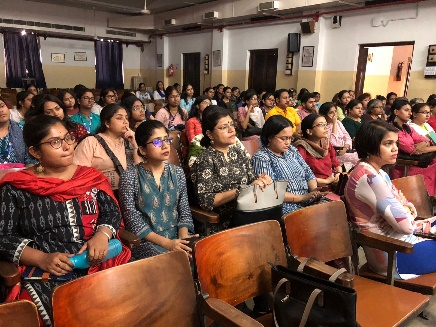
On May 26, 2023, the Research Cell of Loreto College organized a student
paper presentation featuring two research groups from the Department of
Psychology. These research groups conducted their studies under the
guidance of Ms. Shankhabela Mukherjee.
The first research group, comprising Soumili Konar, Anangsha Haldar, and
Sucheta Marik, delivered a paper entitled “Gaslighting: A Saga of
Manipulation.” Their study focused on comparing two distinct generations of
women on the basis of their vulnerability to gaslighting. The findings
revealed a higher susceptibility to gaslighting among the younger
generation, particularly within romantic relationships. Furthermore, the
research unveiled masochism as the most robust predictor of vulnerability
to gaslighting. These findings hold significant implications for addressing
adjustment issues, relationship counselling, and organizational contexts
concerning the vulnerability of women to gaslighting.
The second presentation was delivered by Annweshaa Chatterjee, Debolina
Debnath, Shruti Chakraborty, Sreejita Sarkar, and Sritanuka Ganguly. Their
paper, titled “Special Education During the Pandemic: Perspectives of
Special Educators,” shed light on the challenges encountered in the realm
of online special education. Online special education pertains to the
provision of educational and social services to individuals with learning
disabilities via online platforms, a practice necessitated particularly by
the exigencies of the COVID-19 pandemic. The primary objective of this
study was to interview special educators, comprehensively capturing the
difficulties they face when teaching children with learning disabilities
online. Moreover, the research aimed to identify innovative techniques
employed by these educators to overcome the challenges posed by the online
learning environment.
The papers were followed by an interactive session during which the
presenters convincingly addressed a number of audience queries. Overall,
the two research studies proved to be original and noteworthy contributions
to the field of Psychology.
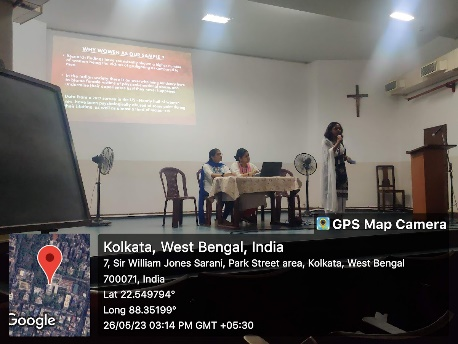
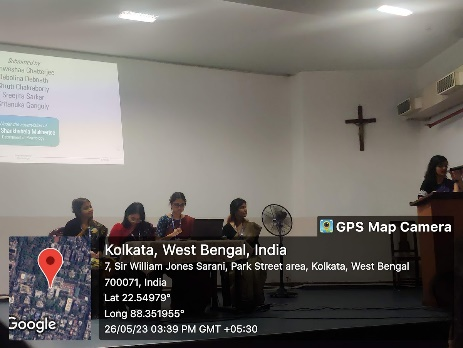
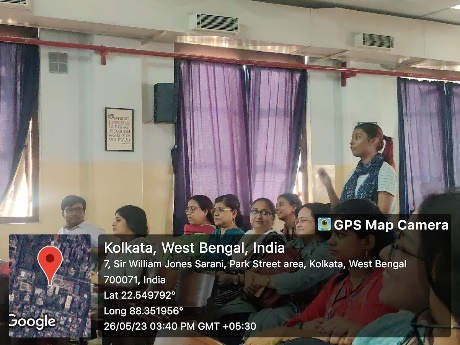
The Research Cell of Loreto College promotes faculty as well as student research. The details of the research presentations organised through the year are reported herein.
A presentation on "Colonising Caste: The Early Census Operations in India
(1872-1901)" was organised by the Research Cell, Loreto College, Kolkata on
March 5, 2022. The speaker was Dr. Krishnokoli Hazra, Assistant Professor,
Department of History, Loreto College, Kolkata. All students from the
Department of History, Student Council members and faculty participated in
this event.
The presentation focussed on how the British Indian government documented
and modified caste categories in the early Census Reports to demonstrate
that Indian Society was irretrievably divided by caste and could never be
united as a nation. This was then used to justify the continuance of
colonial rule in India.
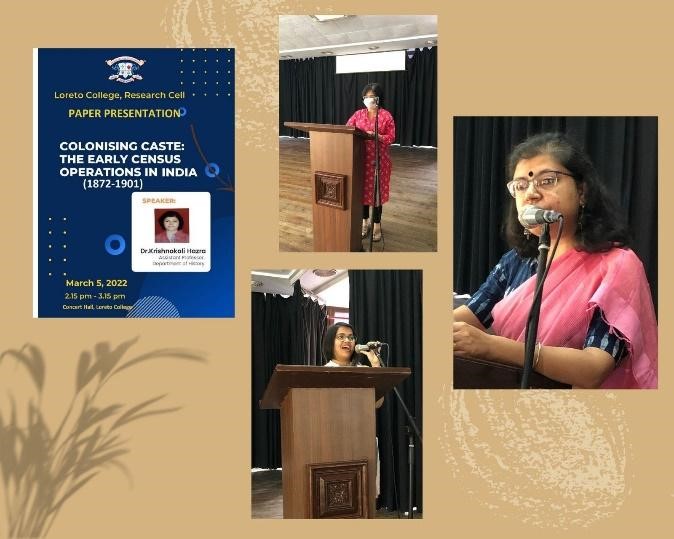
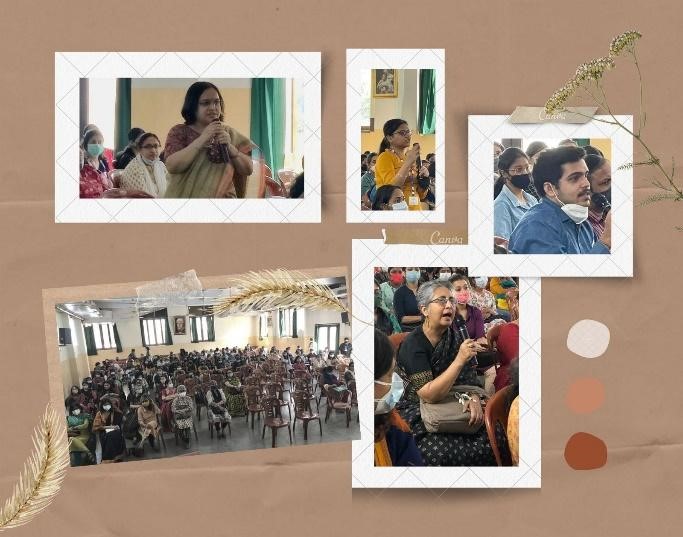
The Research Cell of Loreto College promotes faculty as well as student research. On May 24, 2022 two research papers were presented by two groups of students of the Department of Psychology, Loreto College. Sneh Jajodia, Lipika Binani and Nekita Chatlani presented a paper on ‘An Assessment of the Intention of Married Individuals in Kolkata Towards Professional Psychological Help Seeking and its Predictors’ under the guidance of Ms. Shankhabela Mukherjee, Assistant Professor, Department of Psychology. The study aimed to explore the degree to which attitude towards seeking professional psychological help, marital satisfaction and life satisfaction predicted the intention to seek professional psychological help among married individuals in Kolkata. Attitude was found to be a significant predictor of intention, life satisfaction to negatively predict intention and marital satisfaction and life satisfaction were found to be correlated.
The second paper presented by Abhinandita Chakraborty, Debarati Banerjee and
Mitasha Mitra was entitled ‘An Exploratory Study on Mental Health and
Interpersonal Relationships of Adults during the Work from Home situation in
COVID 19’ under the guidance of Dr Dinaz R. Jeejeebhoy, Assistant Professor,
Department of Psychology. The main highlight of this study was that it took
both the intrinsic and situational factors playing within an individual that
had an impact on their personal and work lives during the COVID 19 pandemic.
Further the study also emphasized on exploring family dimensions especially
enmeshment for individuals working from home.
All students from the Department of Psychology and faculty were present at
the event.
